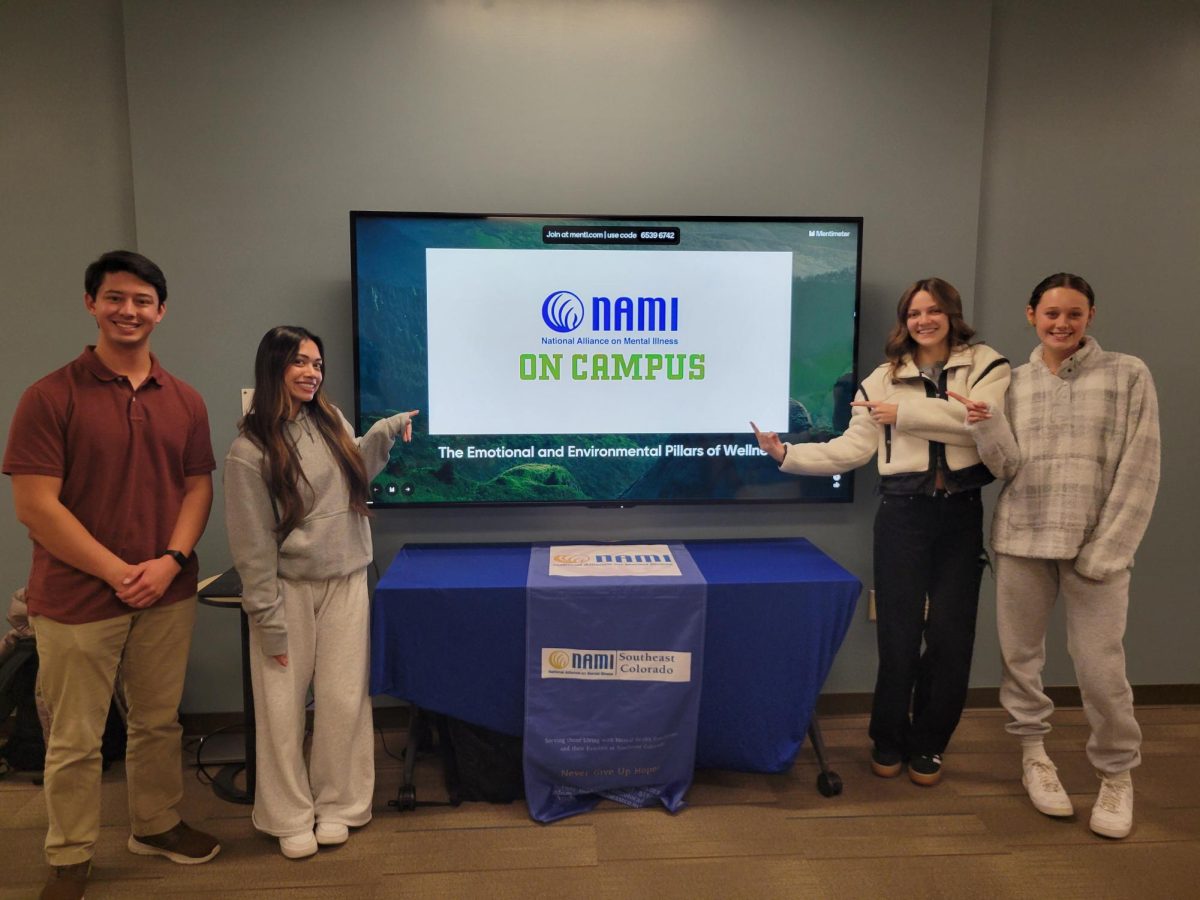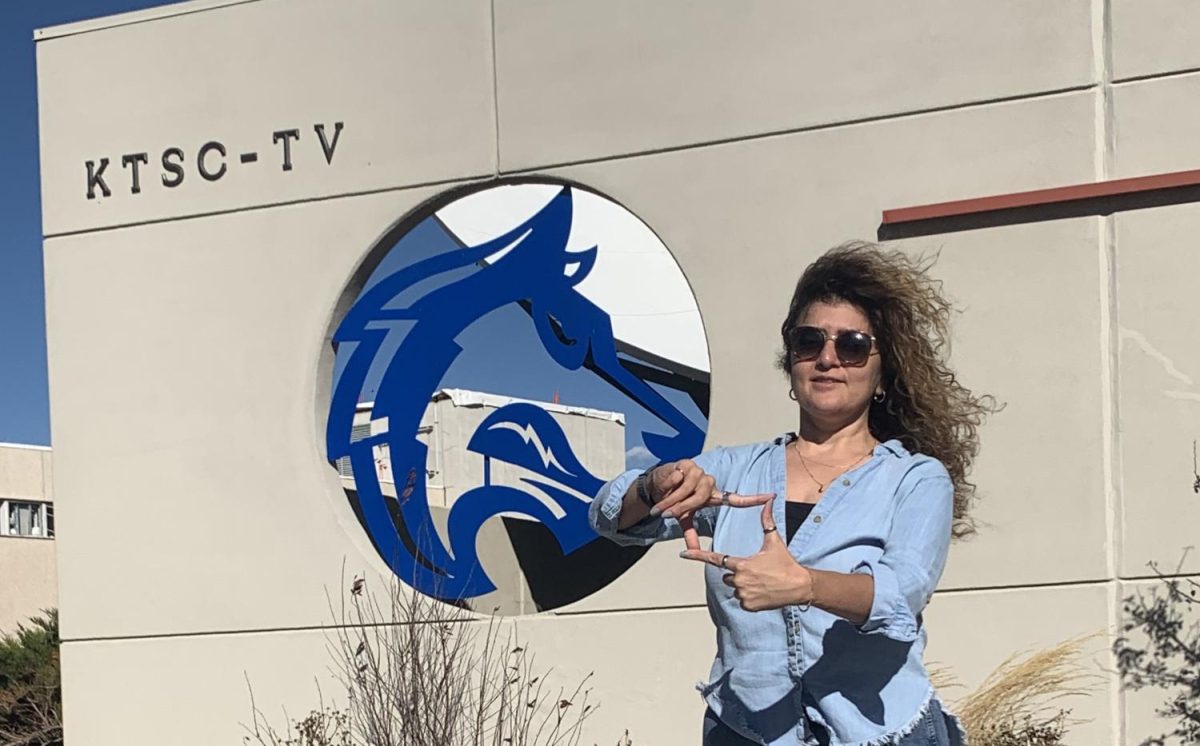Colorado State University-Pueblo President, Joseph Garcia and Vice President for Finance and Administration, Joanne Ballard, addressed fiscal questions raised by the Faculty Senate on Monday, Feb. 16.
Most questions were based on the fiscal operations of not only the university’s fiscal policy as a whole, but also how specific departments are, and should be, budgeted.
It has been at least three years since Ballard was invited to a Faculty Senate meeting and she said she was thankful for the invitation.
A large portion of the concerns were due to not having a Director of Budget for over a year. Budgets were not available on some accounts until months into the academic year.
The way it works, said Ballard, is the money is allocated to Colorado State University. Then the money is divided between each school and then to departments.
The money needs to be on books in an aggressive timeline at the top level. But once the money has been divvied up to the schools, Ballard said, there is not a strict policy stating the money has to be in the respective department’s operating budget by a certain time.
Ballard didn’t have the resources needed to find a Director of Budget in order to get the money on operating budgets in a more timely fashion last year.
“I did not want to give the man-power Joanne wanted,” Garcia said. “In retrospect I have should have done that sooner.”
It is not an excuse, he said, but since hiring a Director of Budget the process is expected to run smoother in the future.
Garcia also pointed out a method of better communication will help solve the part of the budgeting issues.
Faculty needs to be informed money has been allocated to their respective operating budgets, otherwise they don’t know it is there.
“Those are things we absolutely have to fix,” Garcia said.
There has also been a lack of any budget for the English Graduate Program for multiple years. Although there was a signed agreement stating there should be one.
The agreement stated the money the English department earned would support the graduation program and it hasn’t been. After trying to relate the problem for some time nothing had been done to correct it.
“I just want to be clear,” Garcia said. “This is not an Office of Finance and Administration decision…it is a matter of academic policy.”
“As a grad program, it ought to have a budget,” Garcia said.
The summer session budget was also discussed. Summer classes are paid for by a standard lump sum payment of half a million dollars each year.
The lump sum, Ballard said, was divided into two payments. Part of it goes out at the beginning and the rest is held on to until the end of summer.
The summer class budget does not currently correlate with enrollment numbers. Even if enrollment is down, the same amount is applied.
Garcia said he wasn’t aware the amount was “just a historical number” and because the university needs those classes it would be changed.
Garcia said Joanne and Russ are fixing it.
Another question was how the money from donors is spent and if the guidelines set for it were being met.
Ballard said the Office of Finance and Administration works with the Foundation Office in order to insure all money spent followed joint policies.
“The donor fund intent is followed,” Ballard said. This included the half a million dollars from the Occhiato family.
Ballard also addressed how money was spent from the land sale proceeds.
Ballard said the original stipulations the proceeds are spent on are used for academic purposes are still upheld.
There are two places the money comes from, Ballard said. The principle and the interest. The interest generates approximately $30,000 per year.
The interest supports general education courses and there have been expenditures from the principle and all had prior approval, Ballard said.
“The principle grew considerably in one fiscal year,” Ballard said. The sale of the land around the golf course last year alone added $4.5 million to the principle.
The expenditures from the principle in the past three years include:
- $45,000 for Smart Classrooms,
- $322,000 for remodeling and refurnishing the psychology building
- $150,000 for an elevator in the art building (which is up for bids)
- $36,000 for library furniture.
There is also a contract with the City of Pueblo Transportation and CSU-Pueblo that Ballard was asked about.
The contract was for $100,000 and $25,000 of that came out of student fees without the approval or acknowledgement of either the Faculty Fee Committee or the Student Fee Governing Board.
Ballard said she was sorry she had not previously mentioned it, but it will be discussed at the next meeting with them.
Ballard also said there are financial audits every June and September that consolidates the whole CSU system.
Although the main audit is not just for CSU-Pueblo, the school does do performance audits regularly, Ballard said.
There are about four audits per year on campus that are done. Each department is given specific recommendations on how to improve it.
The role of Finance and Administration, Ballard said, is the same for academics as it is for the rest of the universities departments.
“The bottom line is to support the role and mission of university,” Ballard said.







